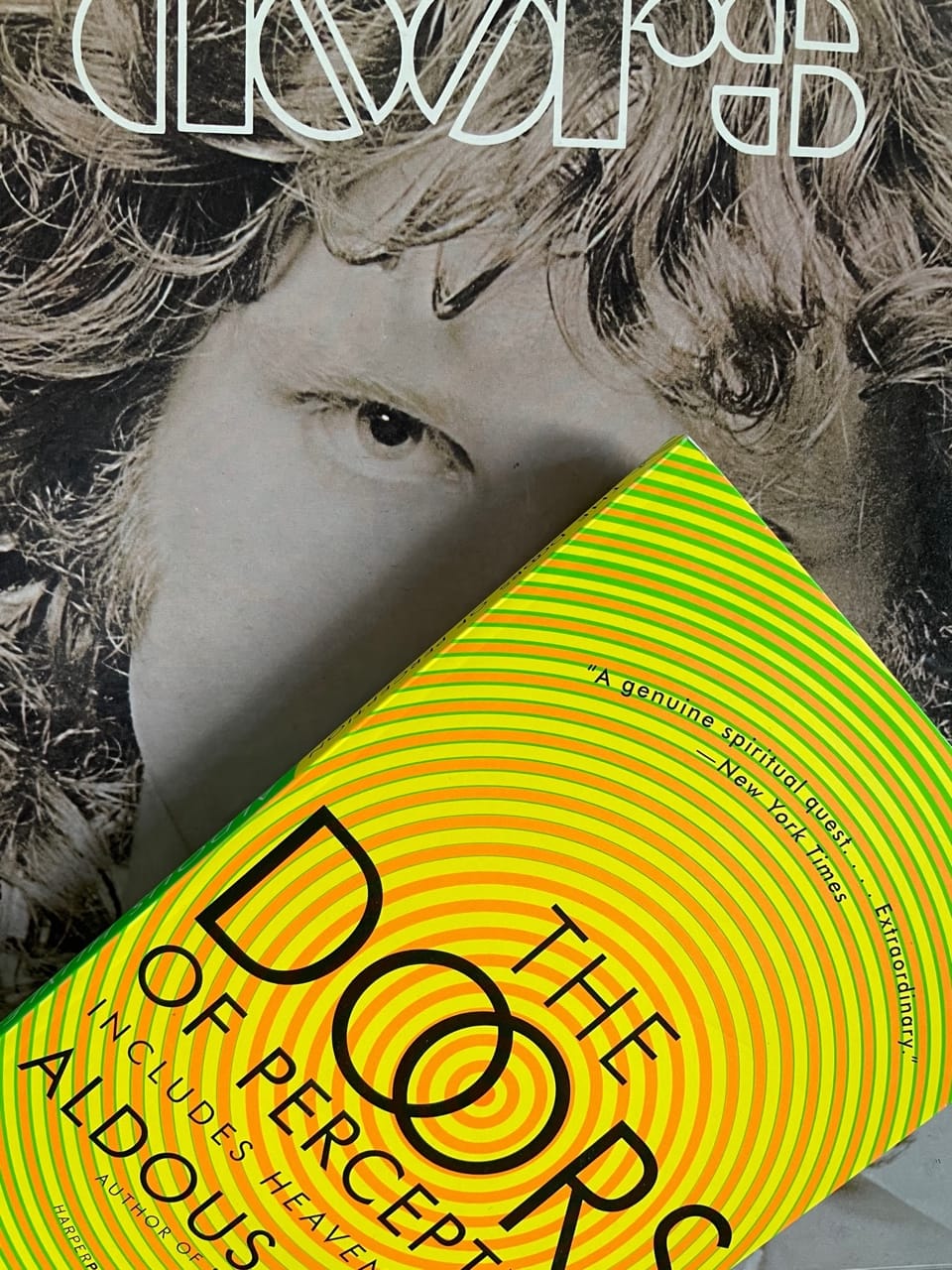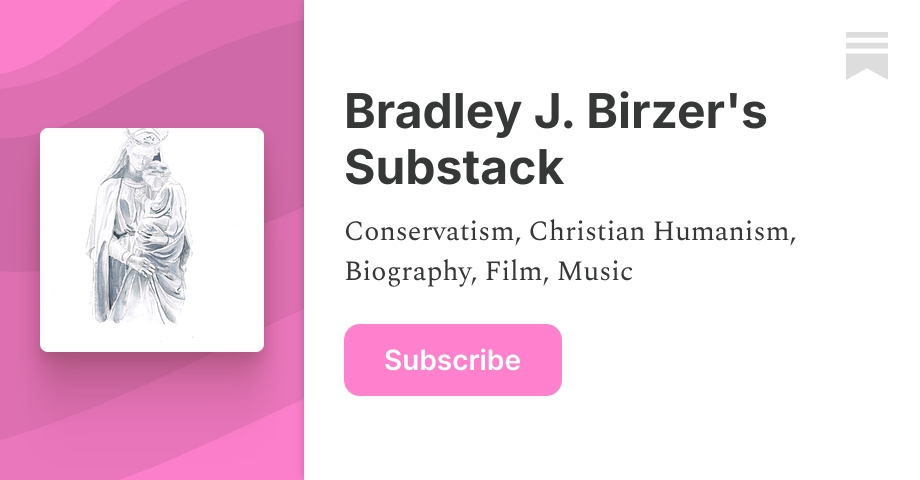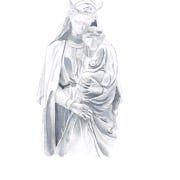How to Break on Through to the Other Side

The Doors released their first single in 1967: “Break on Through (to the Other Side),” a tribute of sorts to Aldous Huxley’s The Doors of Perception.
Huxley had been trying to break on through to the other side for years. He put together a splendid book in the 1940s called The Perennial Philosophy, which looks at the “empirical theology” of saints and sages when it comes to the “macro” issues of our existence: God, truth, charity, suffering, etc. Think of the appendix to C.S. Lewis’ The Abolition of Man, then expand it by about 500.
It seems Huxley was always knocking on the door, trying to get through to something else that wasn’t part of everyday experience.
When he read about Dr. Humphry Osmond’s experiments with mescalin in Canada, Huxley, then living in Los Angeles, wrote to him about trying it. When Osmond was later in Los Angeles for a meeting of the American Psychiatric Association, Huxley brought him to his Hollywood home and Osmond administered the trip, which lasted from about 11:00 AM until 7:00 PM on May 4, 1953.
It was, said biographer Nicholas Murray, the most famous “English literary drug taking since DeQuincey” took opium.
Huxley later wrote about the experience in The Doors of Perception, which became a standard text among the 1960s counterculture. The Doors launched their recording career with it. The Beatles put Huxley on the cover of Sergeant Pepper’s Lonely Hearts Club Band (which featured people that the Beatles would invite to a party). It became Huxley’s second most-recognized book (after Brave New World). The 1960s drug generation loved Huxley.
In return, Huxley deplored that generation. That fact isn’t often recounted in our pop culture. And neither is the fact that Huxley didn’t think psychedelics were that great. He apparently tried them only once more before dying in 1963.
When he decided to try psychedelics, he was convinced that they would admit him “into the kind of inner world described by” William Blake.
They didn’t.
And Huxley knew it:
“I am not so foolish as to equate what happens under the influence of mescalin or of any other drug, prepared or in the future preparable, with the realization of the end and ultimate purpose of human life: Enlightenment, the Beatific Vision.”
Still, the psychedelic experience made an impression.
He wrote in Doors that he saw “what Adam had seen on the morning of his creation—the miracle, moment by moment, of naked existence.”
When asked during the experiment whether it was agreeable, he replied:
“Neither agreeable nor disagreeable. It just is.”
(Emphasis Huxley’s)
Let’s Make It Real
Reality consists of three parts:
The Act of Existence --> Essence -->Being. Different terms have been used for each part and the same word has been used for different parts: The Tao -->Attributes -->Existence. Being --> Accidents --> Substance.
It’s all quite confusing.
But the key point is that there are three parts and only two of them are part of everyday life: Essence and Being (Attributes and Existence; Accidents and Substance).
That first part isn’t.
It’s that first part that sits behind Huxley’s door.
The Act of Existence DOOR Accidents/Substance.
The Tao DOOR Attributes/Being.
The First Principle of Zen DOOR Essence/Existence.
We all need to break on through to the other side.
The first step is to realize there is a door and that there’s something on the other side.
The region on the other side of that door is beyond our everyday world. In the everyday world, we use language and logic to make our way through life. We must take command every second of the day: make ourselves get out of bed, turn the ignition key, click on the computer. Everyday life is one of control: a relentless series of mini-control exercises that let us stay alive.
The other side of that door rests beyond all that. Beyond control, but also beyond logic and language (the tools we use to assert control).
If we want to break on through to the other side, we need to approach it with an entirely different set of tools and an entirely different mindset.
Instead of language, silence.
Instead of logic, meditation.
Instead of control, detachment.
Related
Things on this side of the door are the specialty of the left hemisphere:
"[The] other side of the ‘step across’ from the everyday realm in which we are contained by left hemisphere thinking . . . [into] the strangeness of another realm." Iain McGilchrist, The Matter with Things, 1256, 1259-1260.
Loosely related
Brad Birzer (hardly an acid-taking hippy child) identifies Aldous Huxley as one of his "favorite twentieth-century figures."


